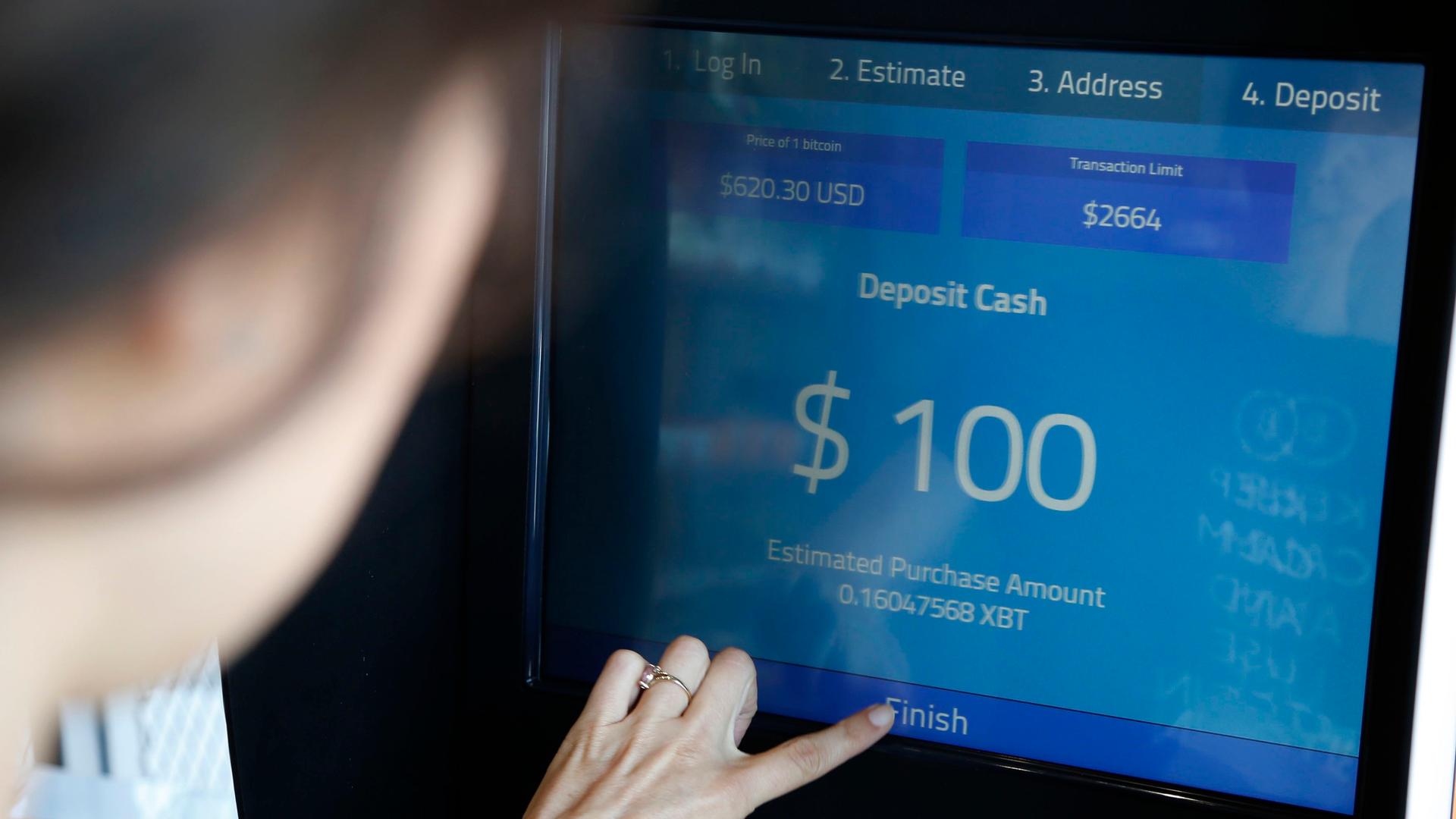Bitcoin’s having a crazy 2017
Dana Byerlee of Santa Monica buys bitcoins at one of Southern California's first two bitcoin-to-cash ATMs which began operating in Locali Conscious Convenience store in Los Angeles on June 21, 2014.
Bitcoin has been in the news a lot lately. It’s been tied to the Russian hacking outfit known as Fancy Bear, recent "Game of Thrones" leaks by cyberattackers demanding a ransom, China’s nouveau riche millennials and something called bitcoin cash. And its most recent headline grab is over its meteoric rise in value.
This month, bitcoin — the cash of the internet — has hit record highs of over $4,000, five times higher than its worth at the end of 2016.
In fact, bitcoin, Ethereum and other cryptocurrencies have been on the upswing all summerlong. While a new Goldman Sachs report says that bitcoin will top out after a further $500 rise, according to CNBC, other analysts say it will continue to grow well beyond that.
In spite of its incredible value, bitcoin is still poorly understood by the general public. But that doesn’t mean it's going away anytime soon. Governments, banks and money services businesses are watching closely to see what happens. Here’s a brief primer about bitcoin, to get you up to speed.
Anonymous invention
Bitcoin is “held” in digital space, and it can be used to purchase goods and services or transfer virtual funds directly to someone, without going through a third party, like a bank or PayPal or Venmo. The digital currency arrived in January 2009 after a person or a collective going by the name Satoshi Nakamoto released an academic paper on the software needed to launch the network in November 2008. (Satoshi Nakamoto also mined the first block of bitcoins.)
Related: He claims to have invented Bitcoin. Should we believe him?
Until then, nobody had solved the problem of “double spending” on the internet — how to transfer digital currency without also copying it, or spending it twice. Think of it like emailing someone an attachment — there are two copies of the same file on both computers. Bitcoin prevents double-spending issue with blockchain technology, which tracks the currency’s flow.
Peter Van Valkenburgh, research director at the Coin Center, a Washington, DC, nonprofit organization that does digital currency research and advocacy, explained, “instead of having one company that sets the authoritative list of transactions to prevent double spending, the computers all share this role." The computers talk to each other to come to an instantaneous agreement over the list of transactions, he said.
Ensuring validity
Bitcoin miners maintain the validity of the data. They check the data, and in return, the software rewards them with newly generated coins — cryptocurrency — that they can then use to make payments to others. Miners often make a decent amount of digital money over a few years, though there is a limit to the payback, Van Valkenburgh said.
“That’s how bitcoins originally entered circulation: People who maintain the network get rewarded and granted bitcoins, and then they send them to other people,” Van Valkenburgh said.
Buying bitcoin
In order to buy digital currencies, you must sign up for an exchange or wallet account. Once you have this account, you can buy currency and enter into transactions. Coinbase is the most common exchange, but there are many others.
There are a lot of wallet options so it is important to pick a reputable service that provides security, said American Bankers Association Vice President Steve Kenneally. Like a cash transaction, there are no fallbacks in case something goes wrong: “It’s convenient like cash at times, but at the same time if you drop it and you lose it there’s no getting it back,” he said.
Other risks
Kenneally said that in addition to security, ubiquity — the ability to use bitcoin for daily transactions — and uncertainty, in terms of its value, are the main risks.
If you want to pay for something using bitcoin, but the recipient only takes Visa, for example, having bitcoin is not going to help, Kenneally said. Potential users need to figure out what sort of transactions they want to conduct and if they will be able to do so with digital currencies, he said.
Fluctuation in price
Van Valkenburgh said, right now, most people buying digital currencies are speculating on the future value and use of the network. Many of those making purchases in bitcoin are located in parts of the world where the existing financial system is failing them. For example, there are reports of people using the system in Venezuela, where there’s hyperinflation, Van Valkenburgh said.
The fluctuation in price makes for uncertainty. In 2009, one bitcoin was valued at a fraction of a cent; today one bitcoin is valued at over $4,000. Whereas if you get paid in dollars, you pretty much know the dollar is going to stay the same over the weekend; if you get paid in bitcoin and then it crashes over the weekend, you’re out of luck, Kenneally said.
Not going away
Governments and banks are paying close attention, Van Valkenburgh says, because digital currencies will eventually be cheaper for them to process than other existing forms of online payments. He expects new financial service providers that are centered on this technology to crop up, and other older companies, such as Bank of America and JPMorgan Chase, to pick it up, as well.
Hannah Levitt is a Washington Program reporter from Northwestern University's Medill School of Journalism.
